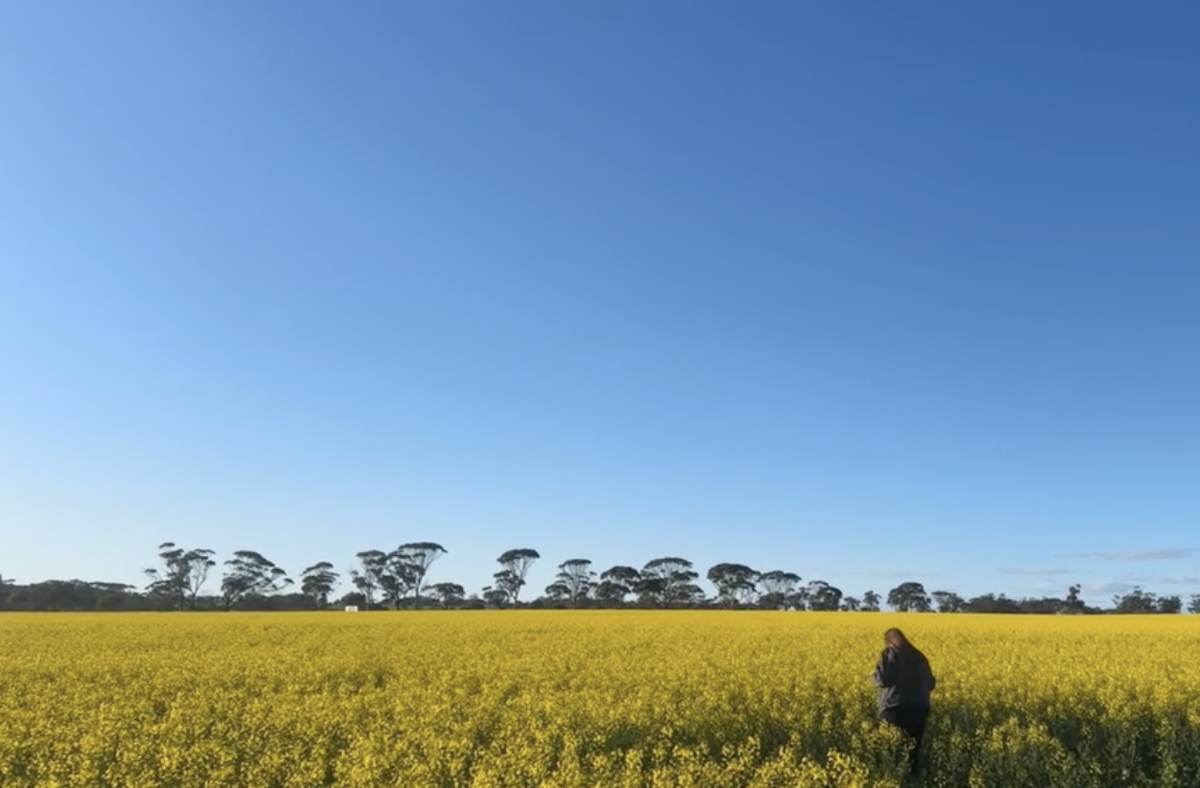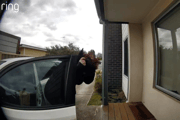
Spring has painted South Australia's countryside in brilliant yellow once again, and the canola fields stretching across the Barossa Valley are nothing short of spectacular.
But before you grab your camera and hop the nearest fence for that perfect Instagram shot, there's something every visitor needs to know: that golden crop is worth $6.47 billion to Australia's economy, and trespassing on it could land you with penalties that'll make your head spin faster than a spring breeze.
The warning from Grain Producers SA comes as reports flood in of tourists treating private farmland like their personal photo studio, jumping fences and trampling crops that represent months of hard work and significant investment.
In this article
The billion-dollar crop you're walking through
Canola is Australia's third most valuable grain crop (behind wheat and barley), and Australia is the second-ranked exporter of canola oilseed worldwide, with recent estimates suggesting a national value greater than $5 billion.
When you step into those golden fields, you're not just crushing pretty flowers—you're potentially damaging part of a massive industry that employs thousands of Australians and feeds families worldwide.
'Farmers are already under significant pressure this season with low rainfall and tight margins, and the last thing they need is preventable damage or extra risk caused by people entering their paddocks'
The timing couldn't be worse for farmers. Persistent dry conditions have resulted in a shift to less input intensive options such as barley and lentils, making every canola plant more precious than ever. When you're fighting tight margins and unpredictable weather, the last thing any farmer needs is visitors treating their livelihood like a theme park.
Beyond pretty pictures: the hidden dangers
What many visitors don't realise is that their innocent photo session could trigger serious biosecurity risks that extend far beyond a few trampled stalks. Invasive species and other pests cost Australia billions of dollars a year in lost production and environmental damage, plus endanger hundreds of native species.
Every time someone walks through a crop, they risk carrying pests, diseases, or weed seeds between properties. Your hiking boots might look clean, but microscopic threats can hitchhike from paddock to paddock, potentially devastating entire regions.
Did you know?
Did you know?
Australia's biosecurity system protects agricultural industries worth $51 billion, environmental assets worth more than $5.7 trillion, and more than 1.6 million jobs. A single pest incursion could cost the economy billions.
The biosecurity concern isn't theoretical. In the past year, Varroa mite continued to spread in NSW and was detected for the first time in Victoria, while horticulture has been threatened by an outbreak of Tomato Brown Rugose Fruit Virus, and Avian Influenza outbreaks occurred in Victoria, NSW and the ACT.
The legal reality: serious consequences await
If you think trespassing on farmland is just a slap-on-the-wrist offence, think again. Australia has dramatically strengthened farm protection laws in recent years, and the penalties might shock you.
Legal Penalties for Farm Trespass in Australia
Federal Level:
• Up to 1 year imprisonment for trespass via carriage service incitement
• Up to 5 years imprisonment for property damage or theft
• Applies nationwide under Criminal Code Amendment (Agricultural Protection) Act 2019
State Level (varies by state):
• NSW: On-the-spot fines $1,000, up to $220,000 for individuals, $440,000 for corporations
• SA: Similar penalty structure under review
• WA: Varies by local jurisdiction
Note: Penalties can include both fines and imprisonment
NSW and Commonwealth laws enacted in 2019 impose up to five-year jail terms for trespassers who secretly record agricultural activity [6]. Even if you're just taking family photos, those trespassing on farms and creating biosecurity risks face an immediate on-the-spot fine of $1000 and further fines of up to $220,000 per person and $440,000 for corporations.
The penalties aren't just about deterring activists—they apply to anyone who trespasses on agricultural land, including tourists seeking the perfect selfie.
Safe ways to enjoy the golden spectacle
The good news? You can absolutely enjoy the stunning canola displays without breaking the law or risking your financial future. Here's how to be a responsible rural tourist:
Safe Canola Viewing Tips
- Admire fields from public roads—many offer spectacular panoramic views
- Visit designated agritourism venues that welcome photographers
- Contact local visitor centres for recommended viewing locations
- Use zoom lenses for close-up shots from safe, legal distances
- Check with Barossa Valley, Clare Valley, and Gawler tourism offices for guided tours
- Look for farm gate signs advertising photography opportunities
Many regions actively promote canola tourism through designated viewing areas and photography spots. The Barossa Valley Tourism Office and local councils often publish maps showing the best legal vantage points each spring season.
The bigger picture: protecting Australia's food security
This isn't just about one farmer's crop or one tourist's photo. Australia's $90 billion agriculture sector continues thriving [8] partly because we maintain strict biosecurity protocols and respect for private property rights.
When international buyers choose Australian agricultural products, they're investing in our reputation for biosecurity excellence and sustainable farming practices. Every time someone ignores farm boundaries, they potentially undermine this carefully built trust.
The canola crop's economic importance extends beyond the farm gate too. Trade disruptions caused by import tariffs on Canadian canola oil imposed by the US and China are expected to shift global demand, creating opportunities for Australian canola processors, with the expansion of crushing capacity positioning Australia well to capitalize on market shifts [9].
Planning your spring adventure responsibly
As spring tourism picks up, remember that rural communities welcome visitors who respect their livelihoods. The same farmers whose crops draw thousands of visitors each year are the ones working to feed Australia and export to the world.
Before heading out to enjoy the spectacular spring displays, check local tourism websites, respect private property signs, and remember that the best photos often come from taking the time to find the perfect legal vantage point rather than rushing onto someone else's land.
What This Means For You
The golden fields will be just as stunning from the roadside—and you'll sleep better knowing you haven't risked your financial security or contributed to problems that could damage Australia's agricultural reputation.
Have you found great spots for viewing canola fields safely and legally? Share your responsible rural tourism tips in the comments below—fellow travellers would love to know about your discoveries!
Original Article
https://au.news.yahoo.com/tourists-...e-erupts-in-regional-australia-032733497.html
Australia: canola production value 2024 | Statista
Cited text: In financial year 2023, the production value of canola in Australia was estimated to amount to 6.47 billion Australian dollars, the highest value on r...
Excerpt: that golden crop is worth $6.47 billion to Australia's economy
https://www.statista.com/statistics/1362601/australia-canola-production-value/
Future canola—CSIRO
Cited text: Canola is Australia’s third most valuable grain crop (behind wheat and barley), and Australia is the second-ranked exporter of canola oilseed worldwid...
Excerpt: Canola is Australia's third most valuable grain crop (behind wheat and barley), and Australia is the second-ranked exporter of canola oilseed worldwide, with recent estimates suggesting a national value greater than $5 billion
https://www.csiro.au/en/work-with-us/industries/agriculture/future-crops/future-canola
Australian Crop Report June 2025—DAFF
Cited text: The largest percentage decrease in area planted is expected for canola, as persistent dry conditions have resulted in a shift to less input intensive ...
Excerpt: Persistent dry conditions have resulted in a shift to less input intensive options such as barley and lentils
https://www.agriculture.gov.au/abar...ural-outlook/australian-crop-report/june-2025
Biosecurity—CSIRO
Cited text: Invasive species and other pests cost Australia billions of dollars a year in lost production and environmental damage, plus endanger hundreds of nati...
Excerpt: Invasive species and other pests cost Australia billions of dollars a year in lost production and environmental damage, plus endanger hundreds of native species
https://www.csiro.au/en/research/natural-environment/biosecurity
Snapshot of Australian Agriculture 2025—DAFF
Cited text: Varroa mite, a parasite that affects European honeybees that are essential for the pollination of many horticultural crops, continued to spread in New...
Excerpt: In the past year, Varroa mite continued to spread in NSW and was detected for the first time in Victoria, while horticulture has been threatened by an outbreak of Tomato Brown Rugose Fruit Virus, and Avian Influenza outbreaks occurred in…
https://www.agriculture.gov.au/abares/products/insights/snapshot-of-australian-agriculture
NSW farm trespass laws upheld by High Court—Stacks Law Firm
Cited text: NSW and Commonwealth laws enacted in 2019 impose up to five-year jail terms for trespassers who secretly record agricultural activity.
Excerpt: NSW and Commonwealth laws enacted in 2019 impose up to five-year jail terms for trespassers who secretly record agricultural activity
https://stacklaw.com.au/news/personal/criminal-law/nsw-farm-trespass-laws-upheld-by-high-court
Farm invasion laws: Where is each State up to? - Beef Central
Cited text: Starting on August 1, a new offence was created where those trespassing on farms and creating biosecurity risks will face an immediate on-the-spot fin...
Excerpt: those trespassing on farms and creating biosecurity risks face an immediate on-the-spot fine of $1000 and further fines of up to $220,000 per person and $440,000 for corporations
https://www.beefcentral.com/news/farm-invasion-laws-where-is-each-state-up-to/
Safeguarding Australia Together: Celebrating National Biosecurity Week 2025—DAFF
Cited text: It underpins our economy by keeping trade moving, allowing our $90 billion agriculture sector to continue thriving.
Excerpt: Australia's $90 billion agriculture sector continues thriving
https://www.agriculture.gov.au/about/news/national-biosecurity-week-2025
Canola continues rise in Australia | World Grain
Cited text: “Trade disruptions caused by import tariffs on Canadian canola oil imposed by the US and China are expected to shift global demand, creating opportuni...
Excerpt: Trade disruptions caused by import tariffs on Canadian canola oil imposed by the US and China are expected to shift global demand, creating opportunities for Australian canola processors, with the expansion of crushing capacity positioning…
https://www.world-grain.com/articles/21245-canola-continues-rise-in-australia







